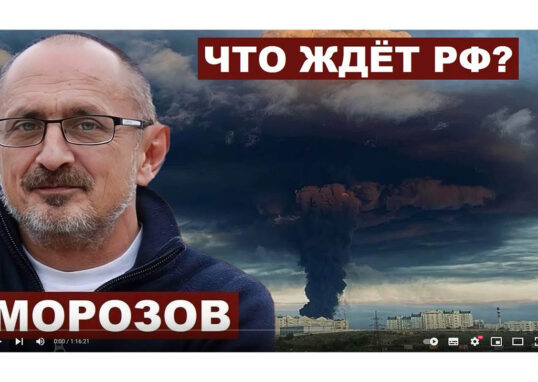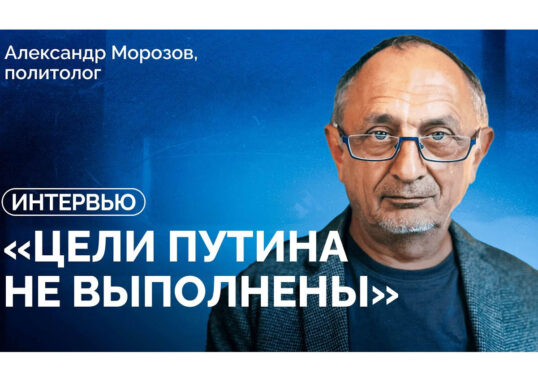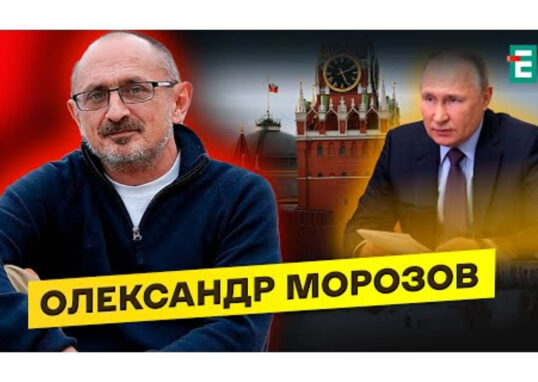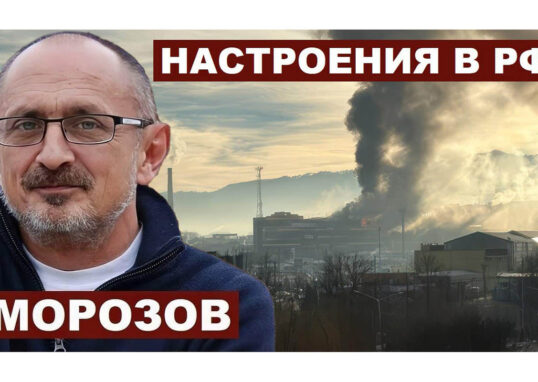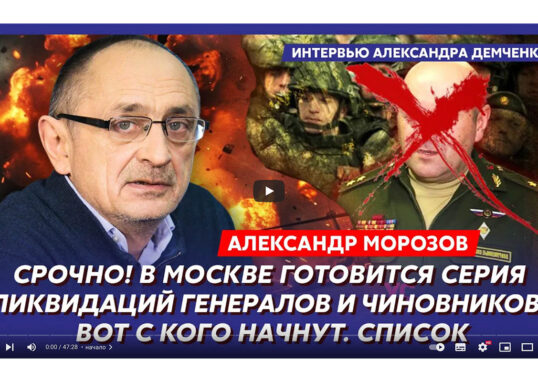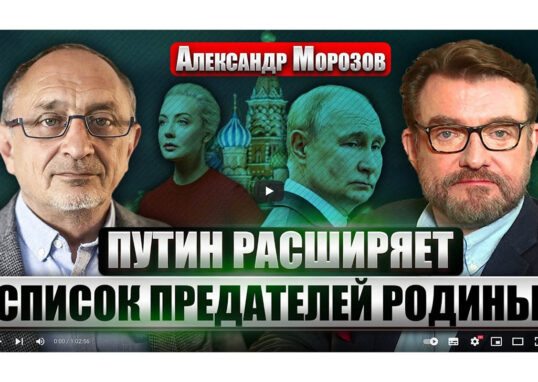Alexander Morozov is a Russian journalist, columnist and researcher with the Boris Nemtsov Academic Center at the Charles University in Prague.
Alexander Morozov’s articles have appeared in Forbes.ru, Snob.ru, New Times, Colta.ru, Republic.ru, The Insider and other independent Russian media. He has been a visiting professor at Ruhr University in Bochum, Germany, and has worked for Deutsche Welle’s Russian service.
In this exclusive interview, Alexander Morozov discusses the political aims and objectives of the pro-Kremlin disinformation campaign. He also presents suggestions for how the analysis of disinformation can be improved and how the disinformation should be countered.
The disinformation swarm
Q. First a question about terminology. Which term do you prefer: propaganda, fakes, disinformation? Or another term?
A. We really need some kind of new term. In the course of the last five years, the expert community has developed an understanding of how the Kremlin’s information activity is organized: It is a field that generates fakes – these are concrete constructed messages; propaganda – these are numerous polemic statements; and disinformation – these are deliberately false messages or interpretations of events.
It is not a machine, but rather a swarm, or a neural network. It is the work of a large number of separate media institutions and individual authors, and this work is not coordinated in the same way as it was in the propaganda of the times of the struggle between the two blocs.
Because of this, much attention is now being paid to the Kremlin’s playbooks, or, in Russian, temniks; that is, to some analogue of the Soviet guidelines. We know that such temniks exist, they are developed by the Presidential Administration. But their role is at a much lower level.
Russia’s dominating media outlets are controlled with a centralised system. Chief editors and top managers attend weekly meetings where they receive instructions from the top of the Kremlin.
The organization of an information attack is now arranged differently: thousands of manufacturers of words and images act independently, relying on a very general frame in which the Kremlin only sets the target of the information attack. Everything else is generated by the swarm itself, which begins to attack from different sides, and then moves in a corridor which the swarm itself has created.
Inside this corridor, all forms of statements are used creatively: the creation of memes, the use of photos and video images, expert columnists, picking statements of European or American politicians out of their context, deliberate distortion of the significance of an event for the sake of a headline, etc.
What are we supposed to call all this? It is not propaganda in the classical sense, nor is it disinformation, as it is understood in the theory of journalism. It is a kind of guerrilla warfare in which “all means are permissible.” The problem is not the fake in itself – there are a lot of them in modern media landscapes; the problem is the information attack. Inside this attack, you find fakes, hacker attacks, public debates in international forums, etc.
Attacks on Belarus and the Czech Republic
Q. Is it possible to give a general characteristic of the so-called “pro-Kremlin disinformation”?
A. Its main feature is its high degree of opportunism and lability. It does not have to follow any systematic political logic. It all consists of tactical attacks.
A vivid example is that of Lukashenko. For some time, it looked like the Kremlin cherished Belarus, as it was a useful political partner, and after 2014, an important channel for circumventing sanctions. It would seem that the price of Belarus should rise, especially after the annexation of Crimea and the conflict with Ukraine. But no! The Kremlin’s informational swarm launched a powerful attack against Lukashenko on all fronts.
Or, for example, the information attack on the Czech Republic. It would seem that in Czech society, as the polls show, there is a very high level of Euroscepticism, sympathies for Russia remain, and the current president is generally opposed to the sanctions against Russia. Why complicate relations with Prague? It would seem to be beneficial to maintain a certain level of trust.
Nevertheless, the Russian media have been stimulating a conflict, throwing out a stream of revisionist and insulting publications related to the Czech legionnaires, to the events in 1968 and the Second World War.
Not politics, but clowning
Q. Do you think that the situation with disinformation is special in Russia, or can it be compared with the situation in other countries?
A. In my opinion, it can. Some regimes are fighting an ideological struggle; they have really different societies than European ones. For example, China or Iran. Others are fighting for their image, like Kazakhstan or Azerbaijan. But what the Kremlin is doing in this area is a very strange postmodern project.
Everyone understands that the Kremlin does not offer any civilisational alternative; at the same time, the Kremlin has moved from the struggle for the image, which it waged some time ago, including under Putin in 2000-2010, to another form of informational game.
For a long time, Putin said: our political interests follow economic ones. Capitalization, access to markets, favorable economic conditions – these are our goals, he would say. And political and media structures followed that logic.
But after 2014, the Kremlin’s media policy has become the joker in the game. We see some kind of painful enjoyment of chaos, destabilization, insoluble problems in other societies. In international fora, Russian representatives have begun to act provocatively rudely. This is not politics, but clowning. It has a many element of decadence. There is a lot of cold mannerism in the Kremlin media. All this is not designed to evoke recognition and sympathy among the audiences.
This kind of propaganda contains no philosophical message to the rest of the world in, except: “Yes, we are rude, we lie, we do not count on your sympathy, you do not take us into account, so we will demonstrate impudent strength and nothing else.”
We lack a comprehensive analysis
Q. Which concrete case of disinformation or propaganda would you recall as particularly vivid and important for understanding the role that it plays in modern Russian society?
A. We are very much lacking a large, comprehensive analysis of one particular case. There are some examples to which everyone refers: “the Lisa case”, “the crucified boy”, the history of the disinformation around MH17, etc.
It would be important to show on the basis of one case how the information attack of a long duration, say, lasting for 12 months, involves various structures – not only media, but also public organizations, public figures, think tanks, government bodies. How this attack is supported by diplomatic actions, what form it takes in Putin’s rhetoric. And what the outcome is of such an attack.
For such an analysis, I would, for example, use the attack on the Greek episcopate and the Patriarchate of Constantinople in 2018. Or, the attack on Lukashenko, which began in December 2018 and has been going on for a year.
Guerrilla tactics
Q. What purpose or purposes does the disinformation serve, in your opinion?
A. If you look at Russian military reviews and programmatic foreign policy articles, it’s easy to see that the thinking in Putin’s environment of siloviks is dominated by the following frame: The world is moving towards a global war in the 2035 horizon, and if there will be no war, there will be a large-scale clash between the US and China and a new “redistribution of the world.”
Russia is in a weak position compared with the capabilities of the United States, NATO, the European Union as a whole, and China. The political class in Russia believes that Putin is leading Russia to a strategically advantageous position on the eve of a global redistribution of the world. And since Russia is weaker, they are convinced that it must follow guerrilla tactics.
They write openly about it: this is a guerrilla war, and this means that any means are permissible against a superior and well-organised enemy. Hence the attitude to hacking, the discussion of the possibilities of tearing underwater cables, using any means for sowing chaos and fragmentation in relation to other societies.
Putin has exchanged Russia’s future for Crimea
Q. A year ago, you wrote that Russia is paying a high price for Crimea? Has anything in your view changed since then?
A. I wrote that Russia pays for Crimea with the degradation of its own society. That is way it is. This process continues.
The Kremlin has large reserves; it can afford military and political operations far beyond the borders of the country. Sanctions are an important symbolic gesture, which underlines the unacceptability of the Kremlin’s course; but they, of course, do not cause significant economic damage.On the fifth anniversary of the illegal annexation of Crimea, Alexander Morozov wrote: “Crimea is a poison that has continuously been injected for five years in small doses into the body of the whole system of Russian education, culture and the entire system of argumentation over national identity.”
However, what the annexation of Crimea did to Russia is that it drove Russian society into a very narrow corridor. And this corridor is getting increasingly narrow. Putin mutilated Russia with this annexation. I agree with those who write: Putin has exchanged Russia’s future for Crimea.
Reciprocal journalistic mobilisation
Q. In your opinion, what can be a threat to misinformation? Can you name specific examples of successful “neutralisation”? What methods and approaches have been used in such cases?
A. Yes, I can mention such examples. But these methods concern only the societies in Northern Europe: Germany, Scandinavia, the Netherlands. What matters is the different media cultures.
The North of Europe is an environment where qualified expert opinions are still highly valued. If an expert who has been dealing with problems related to Iran for 20 or 40 years expresses an opinion in the media, then a significant part of society accepts this as an adequate assessment, which should be followed.
But the problem is that in the south of Europe, in the Balkans, in Eastern Europe there is a different political culture. Here, people believe sources of “alternative opinions”: “The establishment’s representatives are telling you this, and now I’ll tell you how it really is,” so people are told.
In Russia, a huge number of amateur historians have appeared who produce tons of literature, show to the readers that they “work with sources”, while the whole picture of events is distorted, the real context is lost.
For example, the Molotov-Ribbentrop Pact: It would seem that historians of the previous generation clearly showed how the pact had a negative effect on the USSR itself, since Stalin after signing it refused to believe intelligence information that Berlin was preparing a war in the East. But now Putin has decided to return to the concepts of the late forties and to prove the usefulness of this pact. And a significant part of society will begin to believe this.
In my opinion, the European Values think tank here in the Czech Republic are an example of a successful operation. They have created an expert network, and the center demonstrates to its network participants where the information attacks have begun. Journalists see this and decide for themselves whether to respond. This is a natural reciprocal journalistic mobilisation.
Victory through open and free language
Q. Is it dangerous to criticize disinformation in modern Russia?
A. No. In Russia, something different is dangerous. As for disinformation, these structures themselves and the people who produce the disinformation, talk about it like this: “So what if we deceived people? This is a guerrilla war, and everything is allowed here.” Therefore, exposure of disinformation does not work.
The educated part of Russian society in social networks, on Facebook, etc., express their frustration with some crude forms of lies, the promotion of militarism, revising history, etc.; but this indignation cannot lead to any institutional measures.
Therefore, I think it is very important to further develop entire media institutions – TV channels, YouTube blogging, expert networks that would support a different image of the world in the Russian language.
Ultimately, the victory over this post-Crimean degradation of society will be achieved with culture, and with a more open and free language for describing the world.
